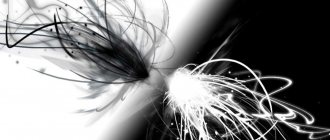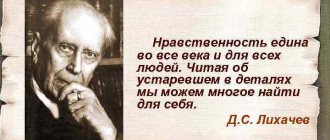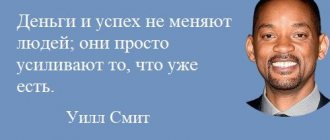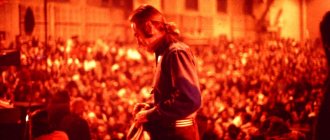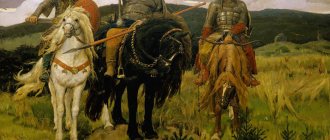Thomas Edison: best quotes, sayings, judgments and aphorisms
Thomas Alva Edison is a world-famous American inventor and entrepreneur who received 1093 patents in the United States and more than 3 thousand in other countries of the world.
He improved the telegraph, telephone, cinema equipment, developed one of the first commercially successful versions of the incandescent electric lamp and invented the phonograph.
Edison worked very hard and often repeated that perseverance is half the success in any business. WNS
has prepared a selection of his best quotes, thoughts, sayings and aphorisms.
1. The biggest mistake is that we give up quickly. Sometimes, to get what you want, you just have to try again.
2. Many famous businessmen, talking about their success stories, utter the same phrase: “The money was lying on the ground, they just needed to be raised.” But for some reason, none of them specify how many times they had to bend down to do this.
3. Anxiety is dissatisfaction, and dissatisfaction is the primary condition for progress. Show me a completely satisfied person, and I will show you a loser in him.
4. Faith is a welcome rattle for those who cannot think.
5. Do you know why you created the incandescent lamp? - No, but I think the government will soon understand how to take money from people for this!
6. I haven't experienced failure. I just found 10,000 ways that don't work. (In order to invent the incandescent lamp, Edison conducted more than 10,000,000 unsuccessful experiments)
7. Genius is 1% inspiration and 99% perspiration.
8. The most important task of civilization is to teach man to think.
9. The value of an idea is determined by its usefulness.
10. Everything comes to those who work and know how to wait.
11. Most people are willing to work endlessly just to get rid of the need to think a little.
12. If we did everything in our power, we would surprise ourselves.
13. Opportunity is lost on most people because it is dressed in overalls and looks like work.
14. The best thoughts were made in solitude. The worst ones are confused.
15. ...to reach the goal through experiments and learn from mistakes.
16. I didn't have working days or weekends. I just worked and enjoyed it.
17. If a person wants something so badly that he is ready to put his entire future on the line, then he will undoubtedly defeat fate.
18. The secret of genius is work, perseverance and common sense.
19. Edison's acquaintances wondered why the gate was so difficult to open. Such a genius could have designed something more perfect. What did the inventor himself say about this? “The gate is designed brilliantly. It is connected to the home water pump. Everyone who enters pumps twenty liters of water into the tank.”
20. Most people believe that one day they will wake up rich. They are half right. When they actually wake up.
21. Never invent something for which there is no demand.
22. If you want to come up with great ideas, know that you can borrow the best ones.
23. A horseshoe brings good luck even to those who do not believe in omens.
24. Luck is when your preparation is adequate to your chance.
25. I never did well at school. I was always among the last in the class. I felt like the teachers didn't like me and my father thought I was a fool, so I decided that I must be a fool.
Thomas Alva Edison - born February 11, 1847, Mylan, Ohio. Famous American inventor and entrepreneur. The most famous inventions are the electric vote counter, ticker, carbon telephone membrane, quadruplex telegraph, phonograph, carbon microphone, incandescent lamp with carbon filament, kinetoscope, electric chair, iron-nickel battery. In 1928 he was awarded the highest US award, the Congressional Gold Medal. Died: October 18, 1931, West Orange, New Jersey.Aphorisms, quotes, sayings, phrases by Edison Thomas Alva.
- The appearance of work is not yet work.
- Dissatisfaction is the first condition for progress.
- Genius is 1% inspiration and 99% perspiration.
- Everything comes to those who work and know how to wait.
- Busyness is not always an indicator of hard work.
- I'm proud that I never invented a weapon.
- Invention requires a good imagination and a lot of junk.
- The most important task of civilization is to teach man to think.
- The secret of genius is work, perseverance and common sense.
- Find what the world needs and only then start inventing.
- A good idea is made up of many small ideas.
- Maturity is often stupider than youth and even more often extremely unfair to it.
- Just as a sculptor needs a piece of marble, so the soul needs knowledge.
- If we do our best, we will literally surprise ourselves.
- I didn't fail. I just found 10,000 ways that don't work.
- I have never taken on inventions that would not make the lives of others easier.
- Show me a completely satisfied person, and I will show you a loser in him.
- I'm a vegetarian and anti-alcoholist, so I can put my mind to better use.
- I had no working days or rest days. I just did it and enjoyed it.
- Anxiety is dissatisfaction, and dissatisfaction is the primary condition for progress.
- Most people are willing to work endlessly just to avoid having to think a little.
- I believe that our spiritual individuality does not die; even after death it is capable of influencing matter.
- You can't declare something to be useless just because it doesn't go as planned.
- Our big flaw is that we give up too quickly. The surest path to success is to always try one more time.
- From time to time, things happen that we have no control over. But the reaction to them remains up to us. Only we have the right to choose how to relate to all life events.
Thomas Edison - a genius with a controversial reputation
The greatest inventor and entrepreneur of the 20th century once said: “I have never failed. I just found 10,000 ways that don't work." Most readers immediately understood who we were talking about. But did you know that Thomas Edison was a “video pirate” and the center of the world film industry is in Hollywood precisely because of him? Especially for you, we have collected all the most unexpected facts from the life and biography of the great inventor.
To school? Never!
It's hard to believe, but Thomas Edison only started speaking at age 4. At the age of seven he went to school, but due to hyperactivity and bad behavior, he studied there for only 3 months. The teacher considered little Edison “limited,” which greatly offended Thomas’s mother, who took her son out of school and began teaching him on her own, which helped the boy develop a love for self-education.
Deafness as an advantage
At the age of 12, the famous scientist began to lose his hearing, but, oddly enough, he liked it! Edison believed that being deaf made him a more skilled inventor because the absence of external sounds helped him focus better on creating his inventions, and all communications with other people were recorded, which avoided any misunderstandings.
At the peak of his hearing impairment, Edison actively used Morse code in communication, which he tapped on the body of his interlocutor. He even gave his first sons the nicknames “Dot” and “Dash”. The scientist’s second wife also knew Morse code, so in the theater she beat out the actors’ speech on his leg especially for her husband, so that he could understand the plot of the play.
Who invented the light bulb
The first version of the incandescent light bulb was invented and patented by scientists from Canada in 1874, but, unfortunately, they could not find the money to refine their invention. 5 years later, Edison bought the Canadian patent for $5,000 and significantly improved it, presenting to the world one of the most useful inventions of mankind.
A few days after the scientist's death, on October 21, 1931, all electric lights in the United States were dimmed for 1 minute in appreciation of his invaluable contributions to science.
"Video Pirate"
In 1881, Edison invented and patented the Kinetograph video recording device and the Kinetoscope device for viewing video through a single eyepiece. Interestingly, to promote his inventions, Edison made a video with cats, popular in our time, which can even today be found on Youtube. But ultimately, these devices lost out to the Cinematograph, which, unlike its rival, could project video onto a screen for several people at once.
By the way, Edison directly influenced the location of the main film industry in the world. It turns out that the inventor owned patents on all basic filming processes, which forced the major film studios to move to “independent” California, where patent rights were not legally enforceable.
By the way, Edison managed to illegally reproduce the 1902 film “A Trip to the Moon” into several hundred copies.
Failure is the key to success
Edison's first patented invention was an electric machine for recording the votes of members of the American Congress. But the device worked so slowly that they decided to abandon it. It was after this failure that the scientist began to adhere to the following motto: “Never invent something for which there is no demand.”
One of Edison's most famous inventions is the phonograph, a device for recording and reproducing sound. The device was so unique for its time that Edison received an invitation to a meeting with US President Rutherford Burchard Hayes himself.
Confrontation with Tesla
In 1884, Edison invited the already famous European engineer Nikola Tesla to his factory to solve complex technical problems - for this he promised him a reward of $50,000. As a result, Edison did not keep his word, justifying himself by saying that Tesla misunderstood his “American humor".
In addition, Thomas Edison opposed the use of alternating current, which Nikola Tesla supported, because he earned a lot of money from patent royalties for using direct current. Therefore, having not found a response in court in a case of patent violations, the American inventor began to engage in black PR for alternating current, demonstrating its danger to humans. Edison-funded engineer Harold Brown even proposed executing criminals with alternating current.
Interestingly, it only ended in 2007 with the final transition of New York from direct current to alternating current.
Friendship with Henry Ford
The famous automobile inventor Henry Ford also worked for Thomas Edison's company in his youth. The budding engineer, who at that time had already built a “self-propelled carriage,” was invited to one of the social parties, where he was introduced to the scientist. Edison was so impressed by Ford's invention that he urged him to stick with his idea with all his might. Ford followed the advice of his idol, deciding to leave Edison's company and open his own car manufacturing business. Soon, they began a strong friendship for life.
It is noteworthy that at the time of Edison's death, the eccentric engineer preserved his friend's last breath in a test tube, which continues to be kept in the Henry Ford Museum in Detroit to this day.
Have time to do everything
Thomas Edison amazed with his efficiency - a typical working day for Edison lasted 16-19 hours. He received his first patent at the age of 21, and in total he owned the rights to 1,093 patents in the United States and 1,239 patents in other countries. While working on the electric light bulb, Edison wrote more than 40,000 pages, and he published all his experiments in 2,500 books.
List of sources:
1. https://www.biography.com 2. https://www.kickassfacts.com 3. https://biografix.ru 4. interesting-facts.com 5. https://nzru 6. https:/ /www.loc.gov 7. https://znaitepro.com/ 8. https://www.edisonmuckers.org 9. https://top-anthropos.com
Denis Marshinsky
Marketing Specialist
Back forward
Edison Thomas
American inventor.
Thomas Edison was born the seventh and very sickly child in the family of a roofing shingle merchant and a teacher... He studied at school for only 3 months, after which his mother taught him... It is important that he achieved all his further achievements through self-education.
“ Thomas Edison , the greatest inventor of all time, did not have a college degree. However, he voraciously read books about everything that interested him. By the age of twenty, he had read all the major works on chemistry and electricity and conducted hundreds of experiments. He often said that books “set out the theory of things,” but “it was only the doing of the things that really mattered.”
Frans Johansson, The Medici Effect: the emergence of innovation at the intersection of ideas, concepts and cultures, M., Williams, 2008, p. 54-55.
In 1876, using money raised from the sale of his technical solutions, Thomas Edison opened his laboratory in Menlo Park (near New York). The “Invention Factory” was a complex of workshops, research laboratories, offices and a scientific and technical library that stored all the reference literature available at that time on various branches of knowledge. Alexander Bell's telephone was improved , the first phonograph was created, etc. Strictly speaking, the first scientific laboratories began to appear in Europe around the 30s of the 19th century, but Thomas Edison created something more: his large laboratory worked not to publish discoveries in scientific journals, but to introduce inventions into widespread practice and was the prototype of modern scientific research. -research institutes...
This is how domestic economist E.G. evaluates his activities. Yasin : “The problem is that the Russians strive to solve global problems - to catch God by the beard, to fly to Mars. But there are no people willing to learn how to do simple things. I can't find many simple things made locally. I can't find, say, toothpaste. And the one that exists is clearly worse. What's the difference between Yablochkin and Edison? Both of them invented the light bulb at about the same time. But only one of them found the money, built a power plant in New York, installed lighting for two blocks and brought this business to marketable condition. Moreover, he himself invented transformers (T. Edison worked with direct current, so it would be more appropriate to say “auxiliary devices” here - Note by I.L. Vikentyev) and other equipment that was needed for this system to work. Made a product that can be sold! And we got some fun out of it.” Aksyonov D., Predictions of the future - the shocking truth from S. Lukyanenko, V. Levi, S. Kapitsa and others, M., “RIPOL Classic”, 2006, p. 211-212.
Another emphasis is made by an American management specialist: “ Edison , the most successful inventor of the 19th century, turned invention into the scientific discipline that we today call research. But in fact, he strived to create his own business and become a big businessman. At the same time, he failed in every business venture he undertook, and had to be removed from management each time in order to save each of the businesses he started . Most of the science-intensive enterprises today continue to be managed in the same way, or rather, they continue to make the same mistakes in management that Edison made. This explains, firstly, why knowledge-intensive industries follow the usual path: everything begins with enthusiastic responses, rapid development, and then follows a sudden crisis and collapse - “from rags to riches and back to rags again” within five years. Most Silicon Valley companies, as well as most new biotech companies, are still inventors rather than innovators, still speculators rather than entrepreneurs. This also perhaps explains why knowledge-intensive industries to this day confirm Kondratieff's - they cannot create enough jobs for the economy as a whole to return to growth. And entrepreneurial “non-knowledge-intensive” companies succeed in this through systematic, targeted efforts.”
Peter Drucker, Business and Innovation, M., Williams, 2007, p. 30-31.
As a rule, the literature dedicated to Thomas Edison does not indicate that, with the exception of the creation of the phonograph and some other inventions, he improved existing analogues of other inventors... Interestingly, when Thomas Edison invented the phonograph, he intended that the device would be used to record “the latest wishes of gentlemen on their deathbeds."
M. Hammer, Business in the 21st century: the agenda, M., “Good Book”, 2005, p. 224.
In 1883, while experimenting with an electric lamp, Thomas Edison made a discovery in the field of physics - he discovered the effect of thermionic emission. But he didn’t take a couple more steps and did n’t invent a vacuum diode and discover the electron!
In total, Thomas Edison received 1,093 US patents (mainly in the field of electrical engineering) and about 3,000 in other countries (it must be understood that a lot of the work was done by his employees), which for a long time remained a record for inventive activity.
Dying, Thomas Edison told his wife: “If there is anything after death, it is good. If not, that's fine too. I lived my life and did the best I could..."


